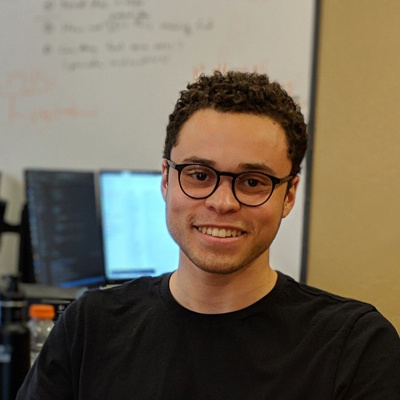
From Science to Software
In 2021 software plays a large role in our lives, impacting industries as disparate as navigation, dining, socialization, medicine, and commerce to name only a few. This is in large part due to the universality of software. With computer and web access more abundant than ever, anyone with the right amount of time and digital resources can learn to program and turn a wide array of ideas into a reality.
For this reason, since the advent of the general-purpose computer in the 1940s software development has become not only a utility, but a tool for actuating vision and creation. In short; the symbiosis of ever-improving hardware and programs provides a vehicle for converting concepts into functioning realities. Given this unbounded space of possible creations, it’s no surprise that a wide array of software projects require novel solutions, and approaches that are at once mathematical and scientific. In fact, in many segments of the software development process the skills and tools used by scientists and mathematicians play a crucial role.
Having myself studied Physics as an undergraduate, I have always valued discovery, passion, and intellectual stimulation in the work I do. I was pleasantly surprised to find the development of software solutions not only a fitting avenue to apply my knowledge, but also a highly captivating and rewarding one. Here are some of the reasons why.

Universality
One of the major draws of the physical sciences is their universality of explanation. For example, physics seeks to provide a pervasive understanding of how (hopefully) elegant rules can produce the world we live in. The broadness of this search allows physicists to explore many facets of reality, from the microscopic to the cosmetological.
Science as a philosophical practice opens the doors to exploration of all phenomena.
Similarly, computation opens the doors to exploration of all possible programs, from 3D simulation, to natural language processing. Just as science encounters universality by attempting to understand the nature of all phenomena, software development encounters universality in building systems for any given phenomena.
Given this versatility, the job and concepts at hand can change almost daily, to fit the software being created. Furthermore, software solutions can be expanded and applied to nearly any field that fascinates you! For curious minds like us here at Aptus, this is a very interesting space to explore everyday.
Problem Solving & Applied Mathematics
It’s hardly a surprise that problem solving is at the core of scientific inquiry. Given a question about a system, a scientist seeks to discover a model that explains the behavior.
However, the same methods and tools used to solve scientific problems are often useful in software development as well. Want to build a program that generates images of cats? Or maybe a website that lets you order pizza from the comfort of your couch? Each of these objectives pose a number of problems that will need to be resolved. To name a few:
● What does it really mean for a cat to be in an image?
● How can your program understand this definition well enough to generate them?
● How will you optimize the movements of drivers and orders, in order to make your pizza delivery service worth-while?
Many of the problems met along the road of software development are highly mathematical in nature, and provide for satisfying models and solutions not unlike those sought in scientific disciplines.
Continual Learning & the Passion to Know
Many students of science are driven primarily by curiosity. There’s a unique excitement that comes with uncovering some truth about a system that was previously unknown, to yourself or maybe even the world.
In software development, unique problems often require unique solutions, and deep understandings of the field at hand. For example, writing a program to understand language goes hand in hand with considering what language really consists of. A program to monitor audio signals requires a deep familiarity of what it means to create and hear sounds.
Due to its universality and ability to be applied to any sector, software development provides an open door to continual learning at many junctures. To ask “how can software development help to advance a field” is also to learn, study, and consider that field in a critical and novel way! It’s no wonder advances in modern software research are constantly pushing the frontiers of understanding in intelligence, graphics, simulation, cosmology, information technology, and many other frontiers.
Having a passion for learning and the ability to tackle new problems is the most important thing here at Aptus! Our team is comprised of people with vastly different backgrounds, yet all share that passion and ability. If you love to learn new things and have a knack for thinking outside of the box, contact us today!






